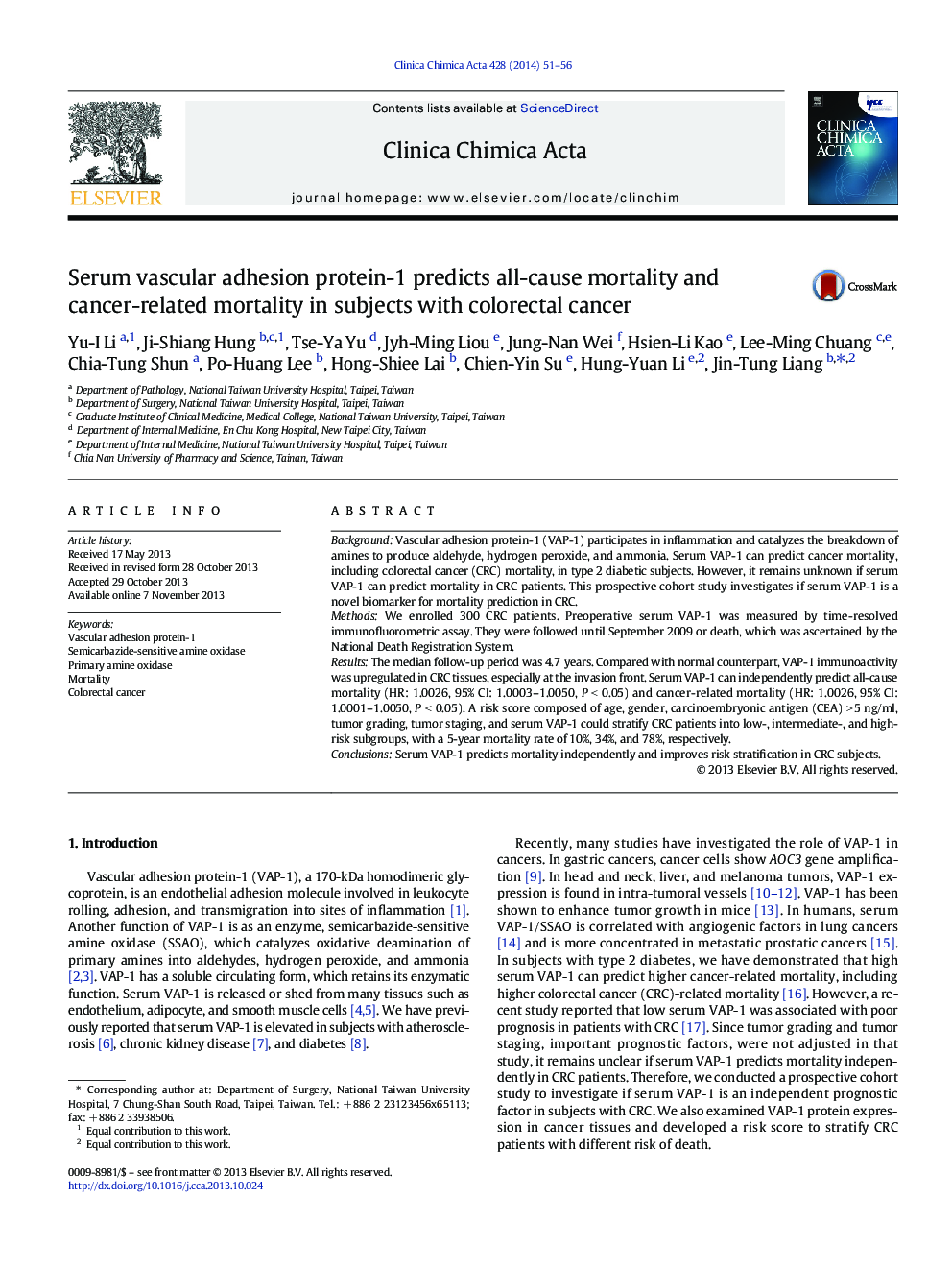| Article ID | Journal | Published Year | Pages | File Type |
|---|---|---|---|---|
| 1965516 | Clinica Chimica Acta | 2014 | 6 Pages |
•We evaluated the association of VAP-1 and prognosis in colorectal cancer subjects.•VAP-1 was found to be retained in cancer cells rather than in normal tissue.•Tumor cells at the invasive front can exhibit a stronger expression of VAP-1.•Serum VAP-1 can independently predict all-cause and cancer-related mortality.•VAP-1 is a novel and useful biomarker for tumor progression in colorectal cancer.
BackgroundVascular adhesion protein-1 (VAP-1) participates in inflammation and catalyzes the breakdown of amines to produce aldehyde, hydrogen peroxide, and ammonia. Serum VAP-1 can predict cancer mortality, including colorectal cancer (CRC) mortality, in type 2 diabetic subjects. However, it remains unknown if serum VAP-1 can predict mortality in CRC patients. This prospective cohort study investigates if serum VAP-1 is a novel biomarker for mortality prediction in CRC.MethodsWe enrolled 300 CRC patients. Preoperative serum VAP-1 was measured by time-resolved immunofluorometric assay. They were followed until September 2009 or death, which was ascertained by the National Death Registration System.ResultsThe median follow-up period was 4.7 years. Compared with normal counterpart, VAP-1 immunoactivity was upregulated in CRC tissues, especially at the invasion front. Serum VAP-1 can independently predict all-cause mortality (HR: 1.0026, 95% CI: 1.0003–1.0050, P < 0.05) and cancer-related mortality (HR: 1.0026, 95% CI: 1.0001–1.0050, P < 0.05). A risk score composed of age, gender, carcinoembryonic antigen (CEA) > 5 ng/ml, tumor grading, tumor staging, and serum VAP-1 could stratify CRC patients into low-, intermediate-, and high-risk subgroups, with a 5-year mortality rate of 10%, 34%, and 78%, respectively.ConclusionsSerum VAP-1 predicts mortality independently and improves risk stratification in CRC subjects.
